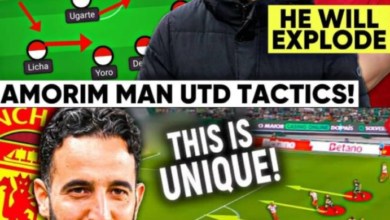
Within the revered confines of Camp Nou, where the echoes of illustrious triumphs resonate throughout history, Barcelona’s President, Joan Laporta, found himself standing at a pivotal juncture. The club, once a towering figure in European football, now teetered on the brink of a significant transformation, beckoned by a compelling proposition from an unforeseen quarter.
Saudi Arabia, emerging as a burgeoning force in the realm of football, was poised to make a resounding statement. Rumors swirled regarding an astonishing £130 million bid for the services of four of Barcelona’s brightest stars, an astronomical figure eclipsing all prior transfer transactions within La Liga. The offer not only captured attention for its sheer enormity but also for the profound implications it carried for the esteemed Catalan institution.
Laporta, a seasoned steward with an unwavering devotion to the club, understood the gravity of this decision. The players under scrutiny were not merely commodities listed on a financial ledger; they embodied the very essence of Barcelona, emblematic of its storied past and lofty aspirations. Among them stood individuals who had become synonymous with the club’s ethos: Frenkie de Jong, Ilkay Gündogan, Joao Cancelo, and the indomitable Robert Lewandowski.
Each of these players epitomized a distinct facet of Barcelona’s identity. De Jong, the masterful orchestrator from the Netherlands, possessed the elegance and foresight to command the midfield with precision. Gündogan, the indefatigable engine from Germany, infused every game with boundless energy and inventive flair. Cancelo, the dynamic full-back from Portugal, melded defensive resilience with searing pace and attacking ingenuity. And then there was Lewandowski, the lethal marksman from Poland, whose predatory instincts inside the box struck fear into the hearts of defenders worldwide.
The proposal from Saudi Arabia tantalized with the promise of an unprecedented financial windfall, one capable of potentially reshaping the trajectory of the club. Yet, Laporta recognized that in the realm of football, success cannot be solely purchased; the intangible elements of chemistry, loyalty, and tradition wield considerable influence.
Amidst his contemplation of the offer, Laporta grappled with the dichotomy between pragmatism and passion. While the infusion of funds could address pressing needs such as squad reinforcements and infrastructure enhancements, the prospect of offloading pivotal players carried the risk of diluting the team’s identity and alienating fans who revered them as iconic figures.
Ultimately, Laporta’s decision transcended mere financial considerations. It served as a testament to his overarching vision for Barcelona—a vision grounded in long-term objectives that prioritized the club’s enduring values of excellence, innovation, and integrity. Thus, he opted to decline the offer from Saudi Arabia, reaffirming his dedication to cultivating a Barcelona that flourished not only on the pitch but also within the hearts of its global supporters.
In the ensuing months, Laporta embarked on a tireless endeavor to navigate Barcelona’s revival, drawing upon its illustrious heritage and widespread appeal to attract top talent and forge strategic alliances. While the allure of lucrative transfers persisted, Laporta remained resolute in his conviction that the true wealth of Barcelona resided not in its financial coffers but in its indomitable spirit and unyielding bond with its fanbase.




